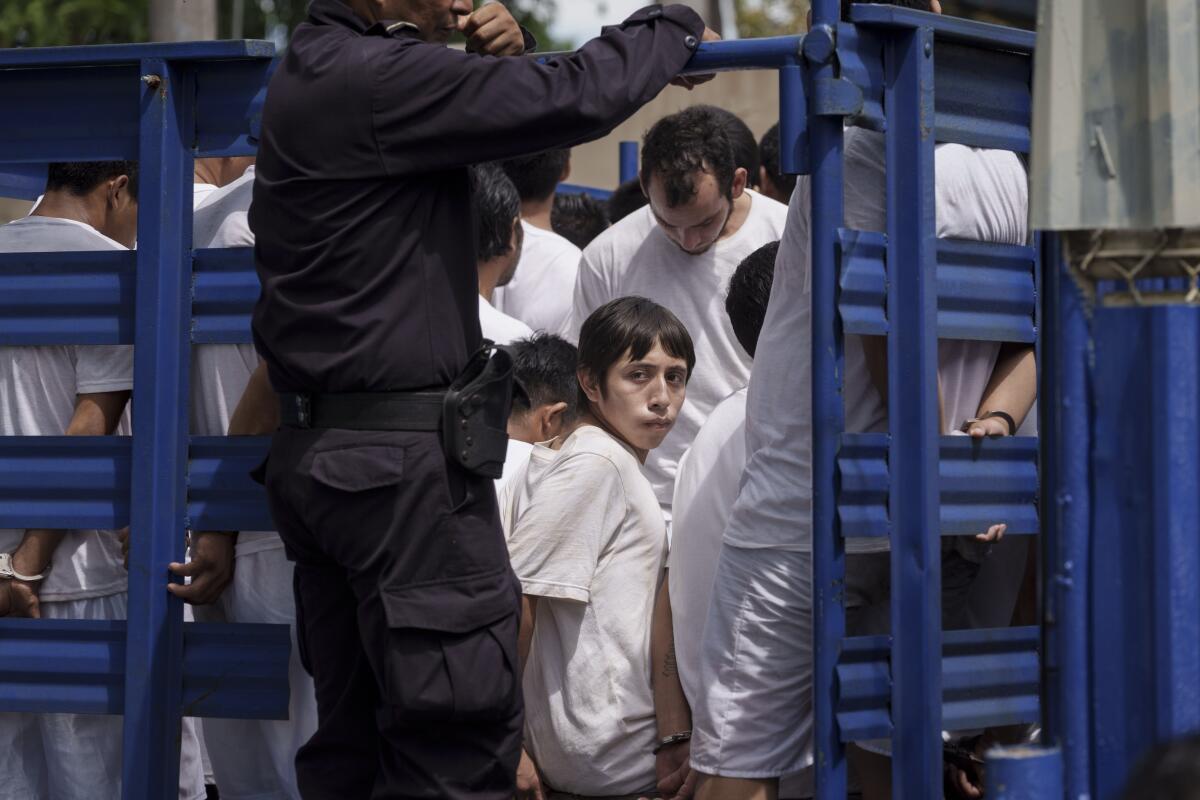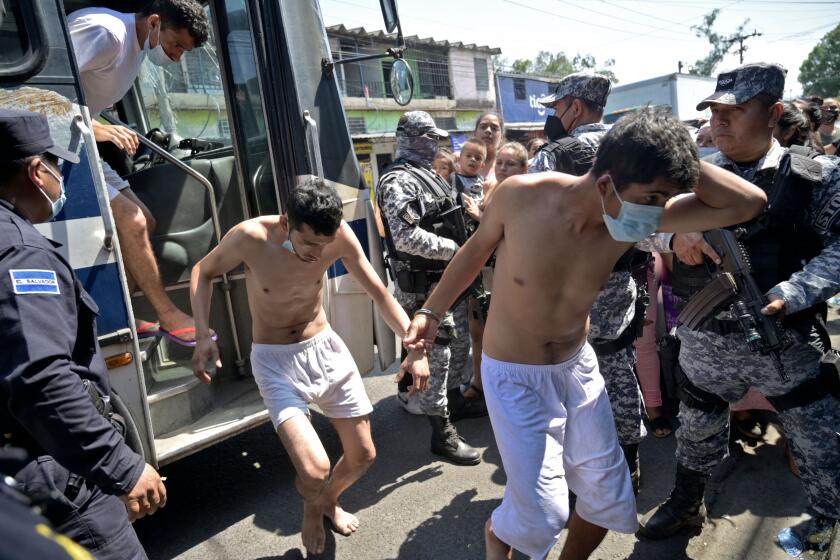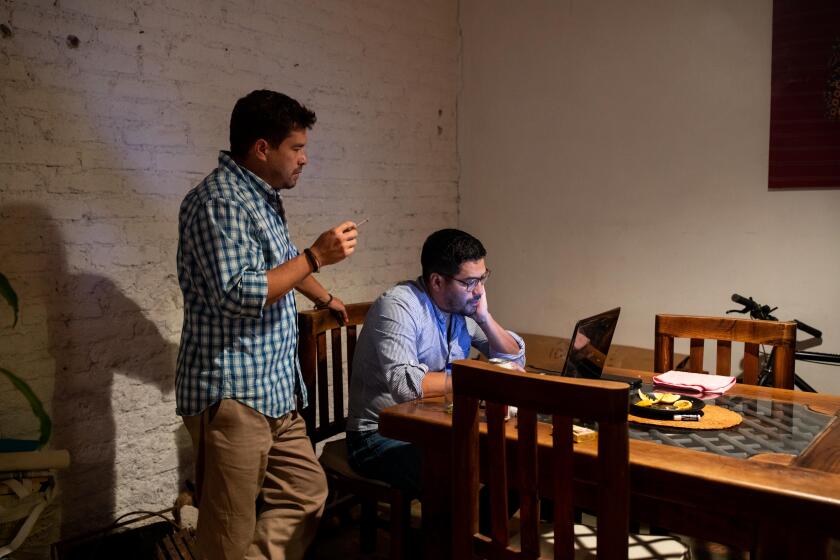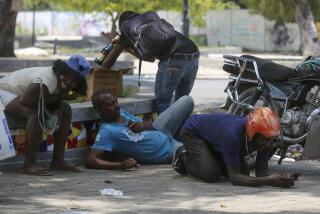Leaked El Salvador data confirm abuses, Human Rights Watch says

Human Rights Watch says it has obtained a database leaked from El Salvador’s government that corroborates violations of due process, severe prison overcrowding and deaths in custody under the emergency powers put in place last March to confront a surge in gang violence.
The global human rights organization said Friday that the database from the Ministry of Public Safety lists details about some 50,000 people who were arrested between the implementation of the state of exception in late March and late August.
A spokesperson for President Nayib Bukele said the office had not seen the report early Friday and had no comment.
El Salvador’s Legislative Assembly approved the suspension of some fundamental rights after an outburst of violence among the country’s powerful street gangs. People no longer have to be told why they are being arrested or what rights they have or be given access to a lawyer. The government also suspended the right of association.
Many of the abuses have been previously reported by Human Rights Watch and local civil society organization Cristosal, but the government data added some detail, including the name, age and gender of those arrested; where they were arrested; the charges they face; and the prisons to which they were sent.
With more than 6,000 people held after a weekend killing spree, El Salvador’s president and his congressional allies have put civil liberties on hold.
Among those arrested during the period were more than 1,000 minors who were sent to pretrial detention.
In March, the country’s Legislative Assembly lowered the age of criminal responsibility for gang-related crimes to 12 from 16.
The database also pointed to staggering levels of overcrowding in El Salvador’s prisons. The government is building a massive new facility, but in the meantime, more detainees are stuffed into existing prisons while awaiting trial.
As of August, the prison population had grown to more than 86,000; according to government information in February 2021, the facilities have a capacity of 30,000.
The government reported in November that 90 people had died in custody since March.
The most common charge is “unlawful association,” accounting for some 39,000 of the new arrests. More than 8,000 face a charge of belonging to a terrorist organization.
“The use of these broadly defined crimes opens the door to arbitrary arrests of people with no relevant connection to gangs and does little to ensure justice for
violent gang abuses, such as killings and rape,” Human Rights Watch said in a statement.
Security Minister Gustavo Villatoro recently said that no international organization was going to tell El Salvador how to fix its problems and that the number of detentions shows that the new strategy has been successful. Violent crime has fallen dramatically across El Salvador, and public polling shows broad support for the harsh measures.
Journalists in El Salvador who write about gangs can now be sent to prison. Two brothers defy the law with a story tying President Nayib Bukele to violent street gangs.
For years, gangs controlled swaths of the country, often controlling who came and went from neighborhoods, including whether government services had access. The gangs extorted from local businesses and aggressively recruited for their ranks.
The government reported 495 homicides in 2022, the lowest figure in decades. The government did not include at least 120 killings committed by security forces against alleged gang members. Still, that
total pales in comparison with the 6,656 homicides the country reported in 2015.
More to Read
Start your day right
Sign up for Essential California for news, features and recommendations from the L.A. Times and beyond in your inbox six days a week.
You may occasionally receive promotional content from the Los Angeles Times.








